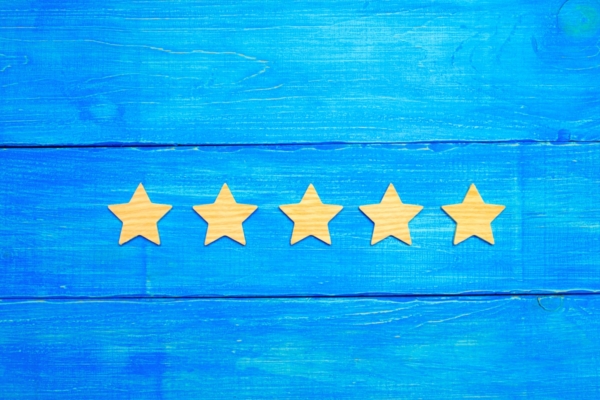
When Should You Take Out a Personal Loan?
Not sure how to finance a major upcoming purchase? A personal loan may be what you need. However, this type of loan isn’t for everyone or every situation.
To help you learn more about the best time to take out a personal loan, we sat down with Amplify’s Consumer Loan Officer, Valerie Figueroa. We’ll break down the basics of personal loans, talk about the best time to take one out, and let you know what you need to apply.
Personal Loan Basics
Before we start talking about when you should take out a personal loan, let’s cover the basics.
A personal loan is simply money borrowed from a bank, credit union, or online lender. Unlike other types of loans designated for specific purposes – such as auto loans or mortgages – personal loans can usually be used for any reason. Some standard features of a personal loan include:
- There is a set repayment period. Personal loans are typically paid back over two to seven years.
- The payments are fixed. Monthly installments do not increase or decrease month to month.
- Most are unsecured loans. Unsecured loans are typically unsecured, or not backed by collateral. Some financial institutions, however, do offer secured personal loans backed by savings accounts or CDs.
- The loan is a lump sum. Unlike a credit card or other revolving credit, a personal loan is disbursed to the borrower in a lump sum.
With personal loans, the borrowing limit is typically higher than the limit on credit cards. This means if you need to purchase something big, a personal loan is usually the way to go— but we’ll talk about that more in a bit.
Benefits to a Personal Loan
“Personal loans offer customers what they need at the current time while not allowing customers to continuously add debt over a long period like a credit card,” Figueroa explains. Interest rates are typically lower than credit cards as well.
Credit scores are the leading factor for a personal loan.”
—VALERIE FIGUEROA
Personal loans are also beneficial because they have fixed terms. They will not increase or decrease over time, making monthly payments predictable and budgeting a breeze. You can calculate upfront the interest that you’ll pay throughout the loan. With a credit card or payday loan, the interest you pay varies and depends on what you charge and how you pay off the balance.
However, if you wanted to, you could pay off a personal loan faster. “If you are trying to pay it off faster or pay less interest,” Figueroa says, “you could always make extra payments toward your loan. This approach will reduce the balance faster and reduce the interest paid.”
When to Take Out a Personal Loan
Many people wonder, “When should I take out a personal loan?” Here are some of the best scenarios to choose personal loans over other forms of financing.
Making a large purchase
Credit cards are handy when making a few small purchases here and there. Still, personal loans are typically better options for a large one-time purchase. It is best to pay off big-ticket items such as recreational vehicles, boats, and more with a personal loan versus other forms of credit.
Even if the expense isn’t one single transaction, personal loans can be useful if you plan on spending a good chunk of money in a short period. An example of this would be home improvements. You may spend thousands over a few months, even if you are not buying one specific item. A personal loan will give you a sum of money to draw on.
Debt consolidation
If you have taken on student loan credit card debt with unfavorable interest rates, it may be a smart move to explore personal debt consolidation loans. With consolidation, borrowers take out a single loan with a lower interest rate to pay off other debts. This makes it easier to pay off since you will only have one bill with a set monthly payment. On top of that, because the interest rate of the personal loan is lower than what you paid off, you’ll save on interest payments.
As a reminder, don’t go off of interest rates alone when weighing the advantages and disadvantages of debt consolidation. Be sure to factor in other fees and costs related to taking out a loan to examine the actual costs.
Starting a Business: Business Loan or Personal Loan?
Some people take out personal loans to start their own business. Even though this is an option for some, Figueroa says it’s not the best choice for everyone. “It is difficult to take a personal loan out when starting a business due to income verification factors,” she explains. “Most businesses under two years old will not have the proper income verification needed to qualify for a personal loan.”
Because of this, it is always best to weigh your options. Be sure to check out business loans, which are often better geared toward folks in that unique situation.
When To Avoid Getting a Personal Loan
It usually doesn’t make sense to take out a personal loan in the following situations:
- Medical expenses. Most people can typically find better loan terms or repayment plans by directly going through a doctor’s office or hospital.
- Emergency funds. Unless you have no other options, personal loans can be an expensive way to cover emergencies, especially if you can’t get a reasonable rate due to poor credit.
- Vacations. It is almost always a better idea to set a little money aside each money rather than put yourself in debt.
- Discretionary spending. Taking out a personal loan to pay for smaller everyday expenses will cost you in the long run. Credit cards are typically better in these situations.
Though they work perfectly in some scenarios, personal loans shouldn’t be a financial band-aid for everything. It is also important to know if your credit score will adversely affect your rates. Bad credit can often have a big impact on interest rates, so borrower beware.
Applying for a Personal Loan
When applying for a loan, remember that the financial institution will ask for a standard array of financial information. This includes your basic info, credit score, and income verification.
Your basic information
The lender will first need to verify that you are who you say you are. You’ll usually supply the lender with info such as your social security number and a copy of your government-issued ID.
Credit score and history
Next, the lender will check your credit score and credit report that shows your history. “Credit scores are the leading factor for a personal loan,” Figueroa says. This three-digit number will not only affect whether or not you get the loan at all, but it can also determine your interest rate.
The lower your credit score is, the higher the risk is that the lender is taking. On the flip side, if you have a good credit score and a solid history of repaying all of your loans on time, the lender will be more willing to give you the money at a better rate.
This is why it is always advisable to check your credit score before setting out to get a loan. If the number could be higher, take the time to work on your credit. This will help you get a better interest rate, which will save you money in the long run.
Income verification
Lenders will also want to know about your income. This is another significant indicator that helps them determine whether or not you can repay the loan. You will also need to submit documentation that verifies your income, such as pay stubs or tax returns.
Conclusion
A personal loan isn’t for every situation. In the right circumstances, however, it can be a useful financing option if you’re looking to make a large one-time purchase or consolidate debt. Like any other loan, you need to shop around and weigh your options. Check out rates, fees, and information in the fine print before signing on any dotted lines, and talk to your financial advisor to make sure you won’t have any trouble paying off your loan.


